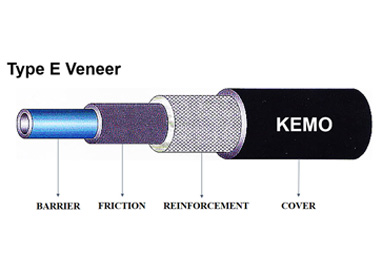trailer brake line hose
Nov . 24, 2024 03:15 Back to list
trailer brake line hose
Understanding Trailer Brake Line Hose A Key Component for Safe Towing
When it comes to towing trailers, safety is the utmost priority. One of the critical components that contribute to safety is the trailer brake line hose. This relatively small yet vital part of the braking system often goes unnoticed until a problem arises. In this article, we will explore what trailer brake line hoses are, their importance, and how to maintain them to ensure a safe towing experience.
What is a Trailer Brake Line Hose?
A trailer brake line hose is a flexible tube that connects the trailer’s braking system to the towing vehicle. It is designed to transfer brake fluid or air pressure from the vehicle to the trailer's brakes. This connection is essential for ensuring that the braking system on the trailer functions effectively in conjunction with the towing vehicle. Typically made from durable materials such as rubber or reinforced polymer, brake line hoses must withstand varying pressures and environmental conditions, including heat, cold, and exposure to road debris.
The Importance of Trailer Brake Line Hoses
The primary role of the trailer brake line hose is to deliver brake fluid or air pressure to the trailer's braking mechanism. When a driver applies the brakes in the towing vehicle, the pressure generated travels through the brake line hose to activate the trailer brakes. This synchronization helps to reduce stopping distances and improve overall control when towing heavy loads.
If the brake line hose fails, it can lead to a lack of braking power on the trailer, creating a dangerous situation. This failure can occur due to wear and tear, exposure to harsh elements, or even manufacturing defects. In some instances, a damaged or corroded hose can lead to brake fluid leaks, significantly compromising stopping capabilities. Therefore, regular inspection and maintenance of trailer brake line hoses are critical for ensuring safety on the road.
Maintaining Your Trailer Brake Line Hose
trailer brake line hose

To maintain your trailer brake line hoses effectively, consider the following tips
1. Regular Inspections Conduct thorough inspections of the brake line hoses before and after towing. Look for any signs of wear, such as cracks, abrasions, or bulges. Pay special attention to the hose connections, ensuring they are secure and free from leaks.
2. Replace When Necessary If you notice any damage or wear, it’s crucial to replace the brake line hose immediately. It’s advisable to consult your vehicle’s manual or a professional technician for the correct specifications and replacement parts.
3. Keep It Clean Dirt and debris can accumulate on the brake line hoses over time. Keeping these hoses clean can help prevent premature wear and tear. A simple wash with soap and water, followed by drying, can go a long way.
4. Protect from Elements If you store your trailer outdoors, consider using protective coverings to shield the brake line hoses from UV rays and harsh weather conditions. This simple step can extend the life of the hoses significantly.
5. Monitor Brake Performance Any irregularities in brake performance while towing could indicate an issue with the brake line hose. If you experience a spongy brake pedal or reduced braking power, have your system inspected by a professional.
Conclusion
In summary, the trailer brake line hose is a crucial component of a safe towing experience. Without it, the ability to control your trailer effectively diminishes, leading to potential hazards on the road. By understanding its function, regularly inspecting it, and ensuring proper maintenance, you can greatly enhance your safety while towing. Remember, a small investment in maintaining your trailer's braking system can prevent significant accidents and ensure peace of mind during your journeys.
